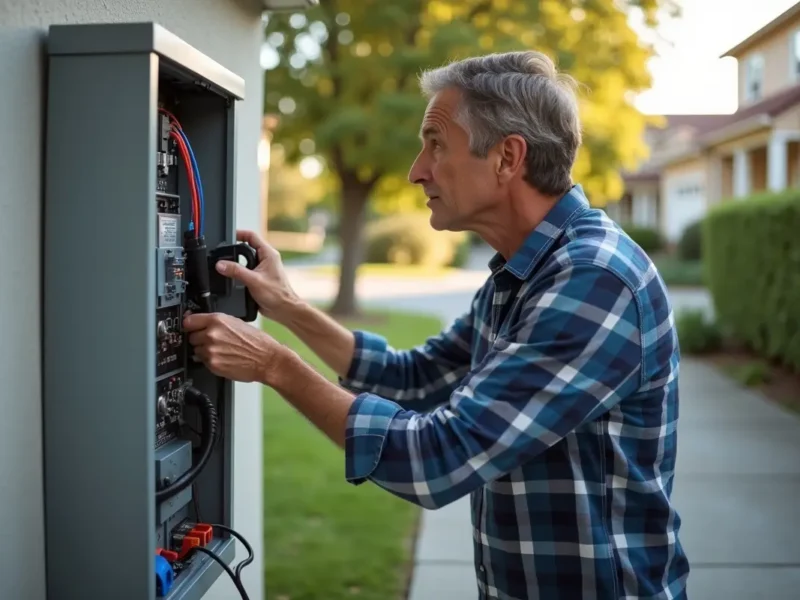Solar energy has become so popular that one in 600 homes in the U.S. now install solar panels every quarter. Solar also accounted for 54% of the new electricity-generating capacity the U.S. added in 2021.
Those figures show that more and more Americans now prefer solar as their energy source. After all, there are many environmental, financial, and health benefits of solar energy.
But what exactly are those perks and pros you can expect when you go solar?
Keep reading, and you’ll learn all about them below.
1. It’s Renewable
According to astronomers, the sun still has about 7 billion to 8 billion years before it dies. That makes solar energy, which comes from the sun, renewable and self-replenishing. Therefore, as long as the sun shines, it can deliver an inexhaustible energy source.
By contrast, fossil fuels are non-renewable. After all, their formation is a long process involving hundreds of millions of years. Yet, more than 70% of electricity in the U.S. still comes from fossil fuels, according to the folks at Blue Raven Solar.
If that doesn’t change, fossil fuels will cease to exist.
2. Has a Lower Carbon Footprint
Human activities, such as using electricity and consuming food, emit greenhouse gases (GHG). GHGs include carbon dioxide, methane, ozone, and nitrous oxide, to name a few. Once released, these gases then contribute to the warming of the atmosphere.
A carbon footprint, in turn, is the sum of all the GHG emissions each person, object, or activity generates.
In the U.S., burning fossil fuels for energy has the most significant carbon footprint. For instance, it accounted for over 70% of total U.S. GHG emissions in 2020.
Solar energy has a carbon footprint, too, but it’s much smaller than fossil fuels.
One reason is that the process of producing solar power itself doesn’t emit GHGs. Instead, most of its emissions come from the equipment used to generate it. Still, its overall footprint is far smaller than fossil fuels.
So by switching to solar, you can also minimize your carbon footprint.
3. Doesn’t Generate Combustion Pollutants
A solar photovoltaic (PV) system uses solar panels to absorb the sun’s light energy. That absorbed energy forms electrical charges, which an electrical field forces to move.
All those moving charges, in turn, produce a flow of electricity. That’s how a solar energy system can supply your home with the power it needs. As you can see, there’s no burning involved during the process.
By contrast, generating electricity from fossil fuels involves burning them. That creates GHGs and pollutants, including particulate matter (PM) and ozone. PM and ozone contribute to polluted air, which 137 million people in the U.S. breathe.
So, besides being non-renewable, fossil fuels can also be significant pollutant sources.
Switching to solar power can help you reduce your dependence on fossil fuels. That cuts the need to burn fossil fuels, which means fewer GHG and pollutant emissions.
4. Helps Reduce Acid Rain
Fossil fuel combustion also generates air pollutants like nitrogen oxides and sulfur dioxides. Once in the air, wind can move these gases hundreds of miles. Moreover, they can mix with precipitation, resulting in acid rain.
Acid rain pollutes water and turns it very acidic by reducing its pH level. Acidic water can impair the growth of marine life. Worse, it can be enough to kill them and their offspring.
Acid rain can also cause the death of plants and damage buildings and structures. For example, it can cause your home’s metal components to corrode.
The good news is that solar power generation doesn’t emit those dangerous gases. That’s another reason why it’s a clean energy source. So by switching to solar, you can also help mitigate acid rain.
5. Brings Health Benefits
Cleaner air translates to fewer air pollution-related illnesses and reduced healthcare costs. Generating solar energy plays a role in this because it doesn’t emit air pollutants. In short, it can help minimize health problems, such as lung and heart diseases.
6. Can Increase Property Value
A typical residential solar energy system can increase a property’s value by as much as $15,000. Even better, new home buyers are often willing to pay for that extra, and in some cases, even more. In addition, energy-efficient houses usually sell faster than their non-energy-efficient counterparts.
7. Can Help You Owe Fewer Taxes
Own and install a home solar energy system anytime from 2022 to 2032, and you can qualify for a 30% federal tax credit. That incentive, known as the solar investment tax credit (ITC), then drops to 26% in 2033 and 22% in 2034. Unless renewed, the program expires in 2035.
Some states, such as New York and South Carolina, also provide state tax credits. They work much like the ITC but are for your state taxes.
There are also 36 states offering property tax exemptions for solar energy systems. On top of that are the 25 states with sales tax exemptions for solar equipment.
8. It’s Cheaper Than Fossil Fuels
Fossil fuels are becoming more expensive because their supplies are dwindling.
On the other hand, the price of renewable energy sources, including solar, is dropping. So much so that 62% of renewables installed and used in 2020 cost much less than the cheapest new fossil fuels.
9. Reduces Your Electricity Bills
When you use solar energy, you reduce your consumption of expensive fossil fuels. Your solar panels may even generate so much energy you no longer have to tap the grid for power. That can result in a significant decrease in your electricity bills.
10. Keeps Your Home Powered During Outages
With solar batteries, you can store some energy your panels generate for later use.
One example is when a power outage happens. So long as you have solar batteries, you can keep your home lit while waiting for electricity to return. Depending on their capacity, they may even be enough to keep appliances running.
Start Reaping the Benefits of Solar Energy
And there you have it, the ultimate guide on the many benefits of solar energy. Now you know it’s renewable, clean, and emits fewer GHGs and pollutants. To top it off, it can help you save on energy bills by reducing your reliance on pricey fossil fuels.
All those perks and pros should be enough to prompt you to install a home solar power system.
Did you like this article? We have other home-related guides to share with you, so please feel free to browse more of our blog now!



